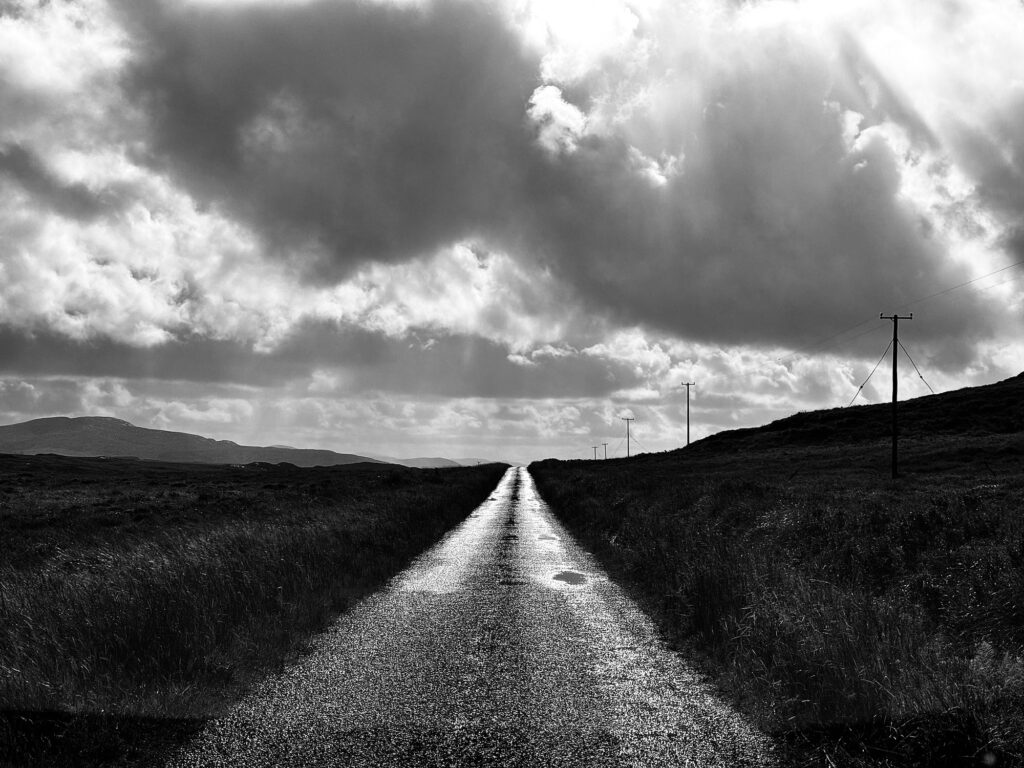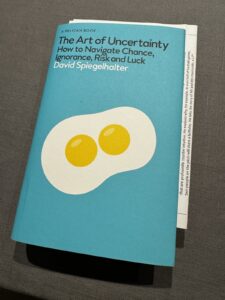Vanishing point

In Donegal, after the rain.
Quote of the Day
”Before you react, think. Before you spend, earn. Before you criticize, wait. Before you quit, try.”
- Ernest Hemingway
Musical alternative to the morning’s radio news
J.S. Bach | Weichet nur, betrübte Schatten, BWV 202 | ”Wedding Cantata”: No. 7, Aria.
Long Read of the Day
What’s become of The Times & Co.?
If, like me, you’re a subscriber to the New York Times, you may be puzzled by the strangely contorted way it is covering the presidential election. In particular, the way it continues to fall into the ‘balance as bias’ trap is a mystery.
Turns out that Jeff Jarvis, the veteran journalist and NYU professor, is likewise puzzled. And on his Buzzmachine blog he’s written the most insightful analysis of the phenomenon that I’ve come across. In it he discusses — and dismisses — two of the prevailing explanations of the phenomenon (the effect of the Timess increasing reliance on subscription revenue; and the idea that liberalism is bad for business in a mainstream publication) and advances an interesting theory of his own.
His most intriguing thought (for me, anyway) is the question of why journalists seem so averse to critical reflection on what they do for a living. Jeff has a book coming out soon about this.
I began the book intending to write a defense of internet freedoms, but it became a critique of media’s moral panic over the internet and the impact that is having on those freedoms. News institutions as companies never acknowledge their own conflict of interest in covering what they see as a new competitors on the net.
I see a much larger problem at work: Journalists and news executives — and I include myself in this critique — were never equipped with the tools of theory and history to inform self-reflection on our field and to imagine alternative means and models of serving our publics.
This is why I hold that simply teaching the craft and skills of journalism in journalism schools is wholly inadequate to the profound challenges in our field. Journalists see themselves as producers of the commodity they call content and they define their value according to their roles in that process of manufacture. They would be better served to also learn from the disciplines of media studies, communication, history, sociology, ethics, and others — empowering them to reimagine and reform our field.
He’s dead right about this. And if journalism as a trade (for it isn’t a profession) is to endure, its teachers and practitioners have to grapple with more than just reporting so that they can understand what’s happening to the media ecosystem.
Books, etc.

Just started on this. I’m reviewing it for Sunday 22 September in the Observer.
Linkblog
Something I noticed, while drinking from the Internet firehose.
- Mountain Bike Flips on a Moving Train. Do not try this on any British train.
This Blog is also available as an email three days a week. If you think that might suit you better, why not subscribe? One email on Mondays, Wednesdays and Fridays delivered to your inbox at 6am UK time. It’s free, and you can always unsubscribe if you conclude your inbox is full enough already!
